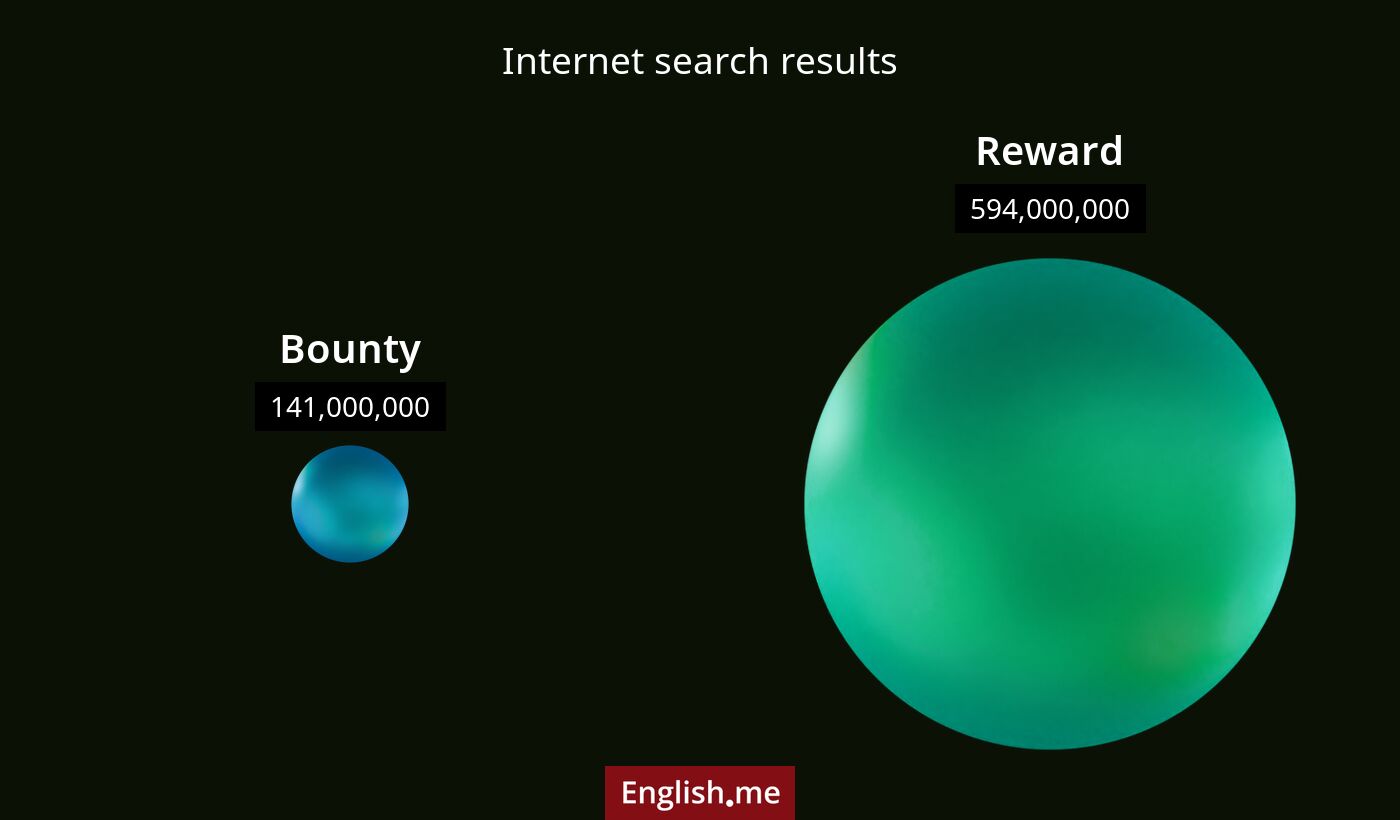"Bounty" vs. "reward": what sets them apart?
Reviewed and edited by  Anwar Kareem 29/06/2025, 08:58
Anwar Kareem 29/06/2025, 08:58
English.me team member

 What is similar?
What is similar?
Both "bounty" and "reward" refer to something given in recognition of effort, achievement, or service. They are often used in contexts where someone is being compensated for a deed, and both can serve as motivation for action.
 What is different?
What is different?
"Bounty" usually implies a reward that is often offered by an authority for the capture of criminals, discovery of something valuable, or for fulfilling a specific task; it has a connotation of being official and sometimes large or generous. "Reward" is a more general term that can be used for compensation or recognition in many contexts, both formal and informal, and is not necessarily large or official.
 Which one is more common?
Which one is more common?

 Examples of usage
Examples of usage
Bounty- The sheriff offered a bounty for the capture of the escaped convict.
- Pirates searched for ships carrying a bounty of gold.
- The company announced a bounty for anyone who discovered security flaws in their software.
- She received a reward for returning the lost wallet.
- The scientist earned a reward for her groundbreaking research.
- There is a reward posted for information leading to the missing dog.

 English
English español
español française
française italiano
italiano deutsche
deutsche 日本語
日本語 polski
polski česky
česky svenska
svenska Türkçe
Türkçe Nederlands
Nederlands